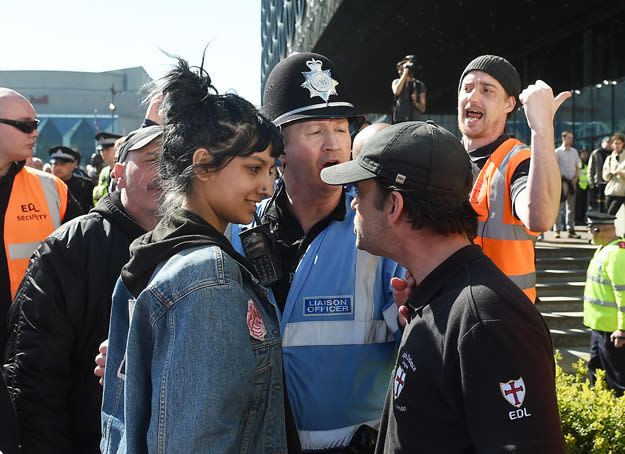
In 1997, a landmark report by think tank Runnymede Trust first introduced the word “Islamophobia” to public discourse. A new study entitled Islamophobia: Still a Challenge for us All has recently been published in the UK, and features contributions from 23 academics studying the impact of Muslim discrimination on issues such as the job market, mental health, civil society, the government’s counter-extremism programs, and gender. It also looks at barriers in British society which potentially hold Muslims back from fully participating.
Baroness Warsi, who is the first Muslim woman to serve in the British Cabinet, has written a forward to the report which she states: “Islamophobia is Britain’s latest bigotry blind spot… In 2011, I said that Islamophobia had passed the dinner-table test. I was speaking about those who display their bigotry overtly, but also those who do so more subtly in the most respectable of settings – middle-class dinner tables. It is this more covert form of Islamophobia, couched in intellectual arguments and espoused by think tanks, commentators and even politicians, that I have spent the last decade trying to reason with.”
According to BuzzFeed, “The British government has been urged to adopt the term ‘anti-Muslim racism’ to tackle Islamophobic bigotry in a year that has seen anti-Muslim hate crime soar by 500% in one month.” The Baroness makes the key point that since giving her first speech on Islamophobia six years ago, sadly she has seen “little funding for work combating Islamophobia and little political will to tackle the issue.”
Khadija, a British black African writer in her mid-20s, tells Buzzfeed she has faced multiple challenges with career opportunities, despite graduating with high-marks. “When I compare myself to white friends and colleagues I notice that I need to work twice as hard for what I want to accomplish. The fact that I am an ethnic minority who also wears the hijab makes them less likely to offer me a job.”



